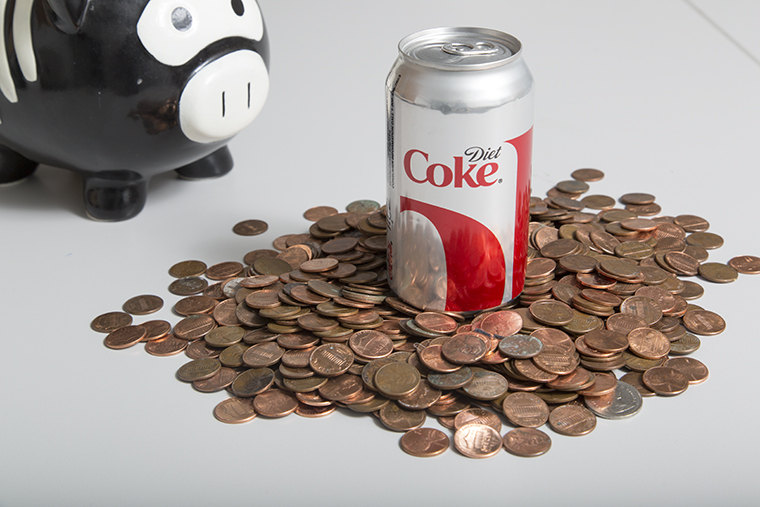Tax hike could fizz out soda sales
Tax hike could fizz out soda sales
March 3, 2014
Trips to the vending machine between classes and frequent stops at gas stations will get more expensive if a new soda tax is passed in Illinois.
The legislation would add a penny-per-ounce tax on sugary beverages sold in sealed containers to dissuade people from poor eating and drinking habits. If it passes, Illinois will become the third state to impose a tax on soft drinks, which could increase the cost of soda by up to 50 percent, said Mark Denzler, vice president of the Illinois Manufactures’ Association.
Illinois Sen. Mattie Hunter (D-3rd) introduced the proposal into the state legislature Feb. 14, claiming the measure would decrease child obesity. The tax is expected to generate more than $600 million, which would go toward funding chronic disease treatments, community nutrition and physical activity programs, said Sen. Heather Steans (D-7th), a co-sponsor of the bill.
Soft drinks are the largest source of daily calories for children ages 2–18, and the caloric intake from soda contributes to rising levels of diabetes and obesity in children, Steans said.
However, obesity rates have dropped 43 percent throughout the past decade in 2–5-year-old children, as reported by the New York Times on Feb. 25.
According to a July 2012 Gallup poll, 48 percent of Americans drink at least one serving of soda per day.
“The purpose is to reduce obesity, particularly in kids, and to help keep folks healthier,” Steans said.
The tax is projected to reduce consumption of the beverages by 23 percent in the first year and could result in new cases of Type 2 diabetes being reduced by 3,400 per year, Steans said.
Denzler said educating people to help them make healthy choices is the only way to combat obesity and diabetes, not taxing them.
“If you are going to get at the greater obesity problem, you’re not going to do it by taxing soda and sugary beverages,” Denzler said. “There are a number of other foods that are significantly worse or probably contribute to the problem more.”
While Steans said soft drinks are the largest source of calories for young Americans, the soda industry accounts for 6 percent of Americans’ calorie consumption, according to the United States Department of Agriculture’s National Health and Nutrition Examination Survey.
The tax will cut middle-class jobs and would be ineffective in decreasing obesity rates, said Brian Rainville, spokesman for the Teamsters Joint Council 25, a Chicago labor union.
A soda tax may reduce consumption but will also negatively impact the soda-manufacturing sector causing layoffs and drastic budget cuts, Denzler said.
“The proponents claim it’s a $600 million tax hike,” Denzler said. “It’s interesting that their own economic study acknowledges that you will lose jobs.”
Manufacturers would not be the only ones to experience job loss if soda consumption plummets with the implementation of the tax, Tim Bramlet, executive director of the Illinois Beverage Association, said. Corn farmers and those with jobs in transportation would also suffer from layoffs.
“It will have a very negative impact on the soda pop industry and all of those people who rely on it for jobs and income,” Bramlet said. “We believe that attacks of this magnitude would have an influence on [soda] consumption.”
The soda industry has changed label practices on bottles and cans to depict the true number of calories and accommodate customers’ health concerns, Bramlet said. He added that some soda companies advocate for a healthy lifestyle and partner with community groups.
“We have done so much community outreach,” Bramlet said. “[We have] built playgrounds for schools and invited funding for programs that help kids stay active. It’s all part of an education process to fight obesity and we think we are doing our part. A tax is a step backward.”
The Illinois Manufacturers’ Association is working with a coalition of labor unions, retailers and individual manufacturers to educate them on the importance of Illinois’ food-manufacturing sector and the negative consequences if the pending legislation passes, Denzler said.
“Reducing the amount of soda is not going to have any impact on obesity,” Bramlet said. “There are a whole lot of other things that can be done, and this is just negative economically.”








